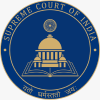Landmark Judgment Summaries
Judgment Summaries are prepared to help promote a better understanding of the decisions of the Supreme Court of India. They do not form part of the Court’s decision or reasons and are not for use in legal proceedings.
| Serial Number | Date of Judgment | Cause Title/Case No. | Subject | Judgment Summary |
|---|---|---|---|---|
| 1 | 02-01-2025 | URMILA DIXIT vs SUNIL SHARAN DIXIT C.A. No. 10927/2024 |
Right of a senior citizen to claim back their transferred property under the Section 23 of the Maintenance and Welfare of the Parents and Senior Citizens Act, 2007 |
URMILA DIXIT V. SUNIL SHARAN DIXIT 2025 INSC 20 (2 January 2025) Justices: Justice Sanjay Karol and Justice Chudalayil T. Ravikumar Question(s): (i) Whether a property transferred by senior citizens by gift or any other medium can be claimed back under the Section 23 of the Maintenance and Welfare of the Parents and Senior Citizens Act, 2007 (“the Act”). (ii) Whether the authorities under the Section 23 of the Act can order eviction from the property and grant the possession to the concerned senior citizens. Factual Background: Section 23 of the Act states that if the person who received property fails to take care of the giver, the transfer can be canceled, as if it were obtained by fraud or force. A Gift Deed was executed by the mother in favour of her son on 7 September 2019 of the property which she had purchased on 23 January 1968. The Deed stated that the son would maintain the mother and the same was registered on 9 September 2019. Allegedly, the same day a vachan patra/promissory note was executed by the son stating that he will take care of the mother and father till the end of their life and if he does not do so, the mother will be at liberty to take back the Gift Deed. On 24 December 2020 the mother filed an application under the Section 23 of the Act before the Sub Divisional Magistrate alleging attacks by the son regarding the further transfer of property, and sought cancellation of the Deed as there was no love and affection left between the parties. This application was allowed by the Sub Divisional Magistrate and the deed was declared null and void (not valid in law). However, the son preferred an appeal which was dismissed on 25 April 2022 by the Collector. Subsequently, the son filed a writ petition before the High Court of Madhya Pradesh. A Single-Judge Bench upheld the order of the Collector and dismissed the writ petition. The son then filed a writ appeal, and a Division-Bench of the High Court reversed the order of the Single-Judge and found the deed valid. Consequently, the mother filed an appeal in the Supreme Court. Decision of the Supreme Court: A Two-Judge Bench of the Supreme Court upheld the decision of the Single-Judge Bench of the High Court and the authorities below and cancelled the Gift Deed because the conditions in the gift were not complied with. The Court also ruled that the authorities while exercising jurisdiction under the Section 23 of the Act can order possession to be transferred. The judgment of the Court was authored by Justice Karol. Reasons for the Decision: Liberal interpretation of the Act The Supreme Court held that the objective of the Act is to empower senior citizens to secure their rights promptly when they transfer a property subject to the condition of being maintained by the transferee (¶25). The Court referred to K. H. Nazar v. Mathew K. Jacob, (2019 INSC 1100), in which it was held that the provisions of a beneficial legislation have to be interpreted with a purpose-oriented approach and the problem that a statute was designed to remedy should first be identified and then a meaning that resolves the problem should be adopted (¶9). The Supreme Court ruled that the Statement of Object and Reasons and Preamble of the Act embodies the intent of the Act which is to ensure effective maintenance and welfare of parents and senior citizens, guaranteed and recognised under the Constitution (¶12). Therefore, the Act is a beneficial legislation aimed at securing the rights of senior citizens in view of the challenges faced by them and must be given a liberal meaning to it (¶14). The Court observed that it is the social obligation of the children to maintain their parents when they need them and it is bound by the Constitution to advance the cause of social justice pertaining to maintenance of parents or wife (¶¶15-16). Application of Section 23 of the Act The Supreme Court, after scrutinizing the Gift Deed and Promissory Note, held that the two ingredients necessary for the application of the Section 23, as propounded in Sudesh Chhikara v. Ramti Devi, (2022 INSC 1257), i.e., the transfer should have a condition attached to it regarding maintenance and basic needs, and the transferee has failed to provide such amenities and physical needs to the transferor, were fulfilled in the present case. The Supreme Court thus held that both documents had a condition of maintenance of the mother by the son, which was not honored (¶¶ 20-23). The Supreme Court held that the purpose of the Act is to provide speedy, simple, and inexpensive remedies for the elderly, and therefore the authorities under the Section 23 of the Act have the power to order eviction and grant possession of the property to the concerned senior citizens (¶24). Prepared By: Rudrakshi Sharma (Intern) Centre for Research and Planning, Supreme Court of India |
